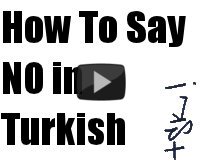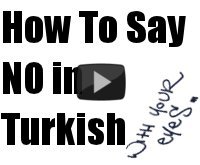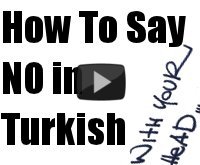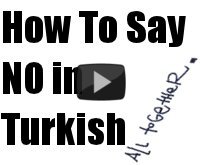Note sulla Pronuncia
Le vocalı ın Turco si pronunciano esattamente come le vocali Italiane. L’unico problema è che loro ne hanno 3 in più:
ö che si pronuncia come la o di “pota” in bergamasco
ü che si pronuncia come la u di “Über”
ı la famigerata i senza puntino. Che si pronuncia come la e di “iamme” in napoletano
Hanno poi delle consonanti che noi non abbiamo:
ş che si pronuncia sc come in “scemo”
ç che si pronuncia c come in “ciao”
ğ che non si pronuncia, semplicemente allunga un pò la vocale che la precede
E pronunciano in maniera diversa:
c che si pronuncia g come in “Gianni”
g che si pronuncia gh come in “ghiro”
k che si pronuncia c come in “casa”
|
|
| 1 2 3 4 5 6 7 8 9 10 11 etc.. 20 30 40 50 |
bir iki üç dört beş altı yedi sekiz dokuz on onbir etc.. yirmi otuz kırk elli |
|
|
(viene usato molto di più che per il semplice significato letterale… Diciamo che nel dubbio un “Çok güzel” ti tira fuori dai guai…)(it actually means much more than that, it’s a passaportoue sentence…) |
| Metodo 1: Tsk!#1 Tsk! |
 |
Metodo 2: con gli occhi#2 With your eyes |
 |
| Metodo 3: con la testa#3 With your head |
 |
Metodo 4: tutto insieme#4 All together |
 |
[ Qui troverete il Dizionario Illustrato del Cibo Turco ][ Here you will find the Illustrated Dictionary of Turkish Food ]
![[:it]Sulla Terra e nel Vento[:en]Overland within the Wind[:]](http://longaterra.net/300kg/wp-content/uploads/sites/15/2016/08/nuovoheaderlogo.jpg)
One Comment
Comments are closed.